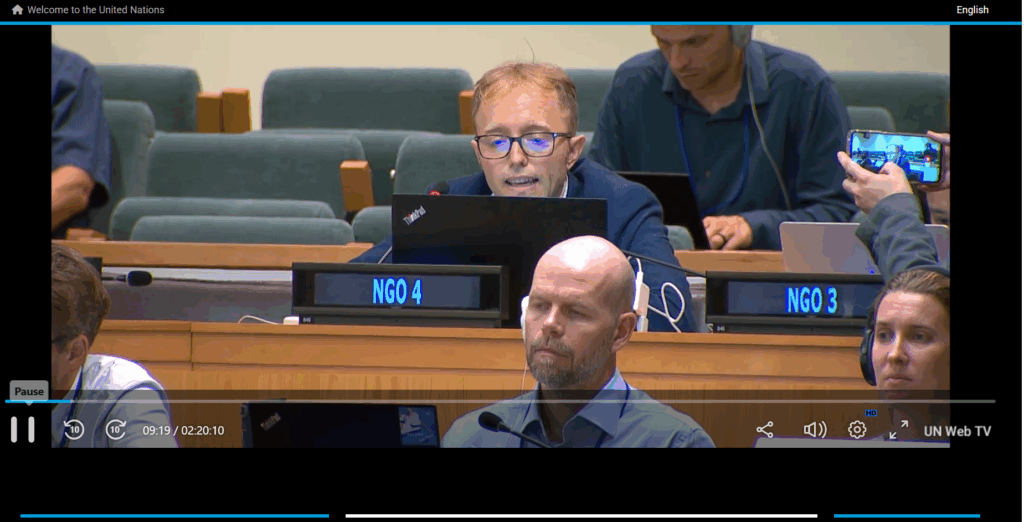This blog was written by Henrique Alencar, Policy Advisor Tax and Inequality at Oxfam, who spoke at the UN sessions
In the first weeks of August 2025, the initial sessions of the United Nations Framework Convention on International Tax Cooperation took place at the UN headquarters in New York. It represented a new phase[i] of an ambitious process that can be traced back to a strong and concerted push by African Nations and the G77. Alongside numerous representatives of civil society organizations, Oxfam Novib and Tax Justice Network Africa attended the sessions and took part in the ongoing discussions to form a more inclusive and effective international tax framework.
The initial sessions focused on the content, principles and objectives of the Framework Convention, while also discussing opening points on Protocol I (the taxation of income derived from the provisions of cross-border services) and Protocol II (the prevention and resolution of tax disputes). Given that this process is foreseen to take three years with delivery of a proposed Framework Convention in 2027, the discussions in New York were very much focused on creating a structure from which to build and setting the bases for further development.

Henrique speaking at the UN’s inaugural sessions of the Framework Convention on International Tax Cooperation
While the negotiations for the Framework Convention represent a blank sheet from which to address the structural faults in international tax governance, many of the participating delegates currently appear unwilling to consider alternative approaches to significant, ineffective and unequal aspects of international tax. This is the case with the current transfer-pricing system and the global network of bilateral tax treaties, which are key avenues for corporate tax avoidance by multinational corporations and frustrate tax collection efforts across both developed and developing countries. Representing Oxfam Novib, I delved into this failure to be more ambitious in reforming international taxation both at a CSO side-event (intervention comes at minute 44:22) and through an intervention at the main session of the UN negotiations.
Over the years, Tax Justice Network Africa has performed a leading role in fostering African unity within the UN process; facilitating knowledge exchange among African CSOs, intergovernmental bodies (ATAF and AU) and ensuring the continent’s negotiation position reflects civil society’s concerns and proposals. During a side-event organized by Civil Society Organizations, TJNA provided a powerful insight into the systemic factors that trap African nations in inequitable international agreements – agreements that undermine inclusive governance frameworks and hinder their ability to collect the taxes needed for their national development.
As the initial sessions wrapped up on August 15th, civil society organizations are already preparing for the next sessions, which will take place in Nairobi from 10 to 21 November. Hosting those meetings in Kenya is a positive move that signals the initiative’s ultimate objective, which is to ensure that Southern countries finally get an equal voice in international tax governance.
[i] See here article from Make Tax Fair on the adoption of the Treaty’s Terms of Reference by the UN General Assembly last August
